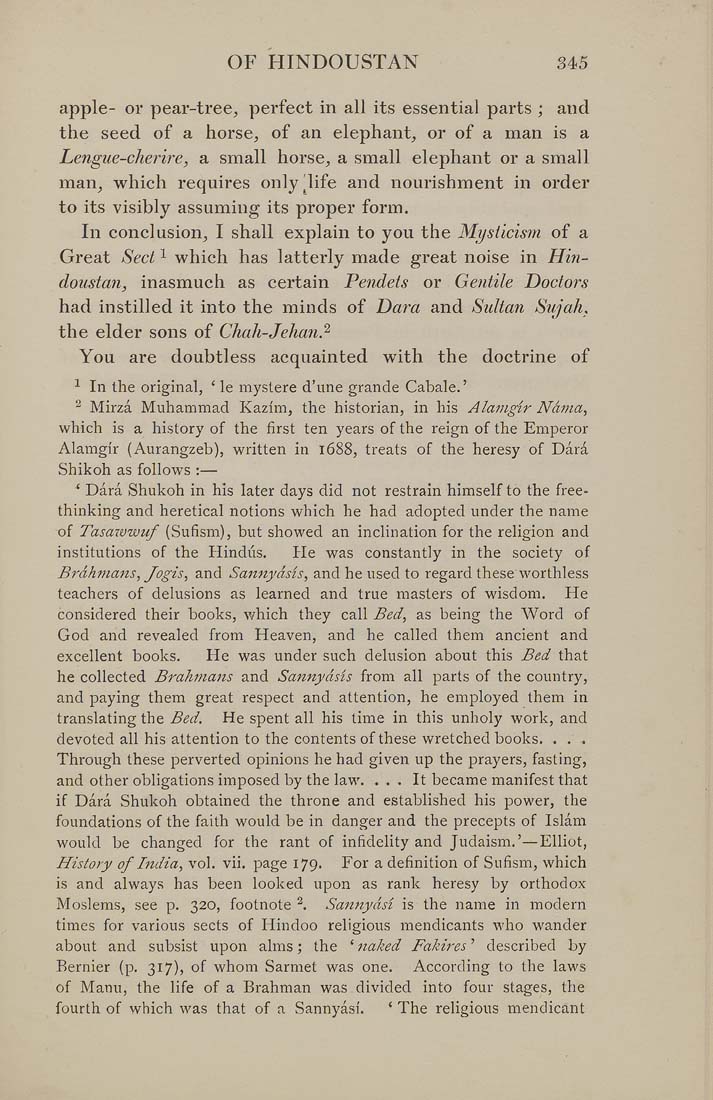OF HINDOUSTAN 345
apple- or pear-tree, perfect in all its essential parts ; and
the seed of a horse, of an elephant, or of a man is a
Lengue-cherire, a small horse, a small elephant or a small
man, which requires only life and nourishment in order
to its visibly assuming its proper form.
In conclusion, I shall explain to you the Mysticism of a
Great Sect! which has latterly made great noise in Hin¬
doustan, inasmuch as certain Pendets or Gentile Doctors
had instilled it into the minds of Dara and Sultan Sujah,
the elder sons of Chah-Jehan.'^
You are doubtless acquainted with the doctrine of
! In the original, ' le mystere d'une grande Cabale.'
^ Mirza Muhammad Kazim, the historian, in his Alamgir Ndma,
which is a history of the first ten years of the reign of the Emperor
Alamgir (Aurangzeb), written in 1688, treats of the heresy of Dar4
Shikoh as follows :—
' Dara Shukoh in his later days did not restrain himself to the free-
thinking and heretical notions which he had adopted under the name
of Tasawwuf (Sufism), but showed an inclination for the religion and
institutions of the Hindus. He was constantly in the society of
Brdhmans, Jogis, and Sannydsis, and he used to regard these worthless
teachers of delusions as learned and true masters of wisdom. He
considered their books, which they call Bed, as being the Word of
God and revealed from Heaven, and he called them ancient and
excellent books. He was under such delusion about this Bed that
he collected Brahmans and Sannydsis from all parts of the country,
and paying them great respect and attention, he employed them in
translating the Bed. He spent all his time in this unholy work, and
devoted all his attention to the contents of these wretched books. . . .
Through these perverted opinions he had given up the prayers, fasting,
and other obligations imposed by the law. ... It became manifest that
if Dara Shukoh obtained the throne and established his power, the
foundations of the faith would be in danger and the precepts of Islam
would be changed for the rant of infidelity and Judaism.'—Elliot,
History of India, vol. vii. page 179. For a definition of Sufism, which
is and always has been looked upon as rank heresy by orthodox
Moslems, see p. 320, footnote ^. Sannydsi is the name in modern
times for various sects of Hindoo religious mendicants who wander
about and subsist upon alms; the ' naked Fakires' described by
Bernier (p. 317), of whom Sarmet was one. According to the laws
of Manu, the life of a Brahman was divided into four stages, the
fourth of which was that of a Sannyasi. ' The religious mendicant
|








